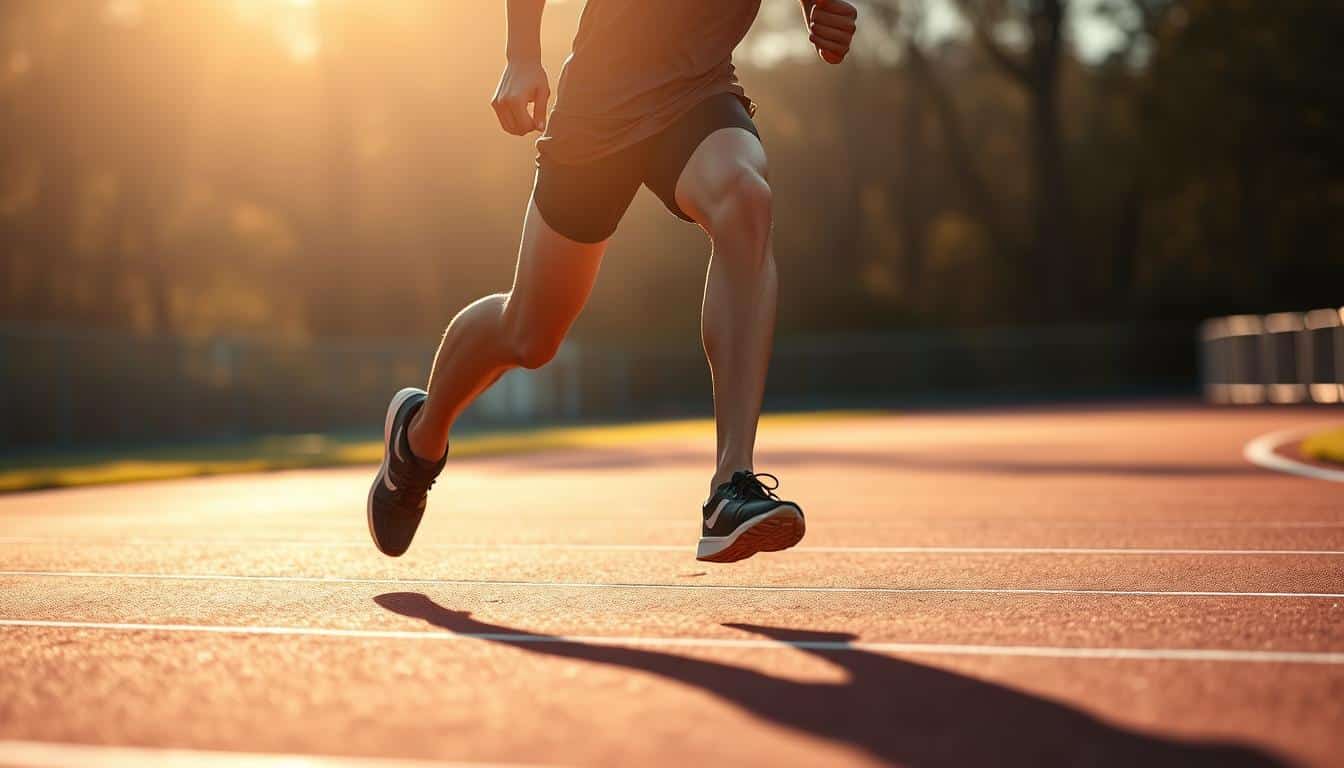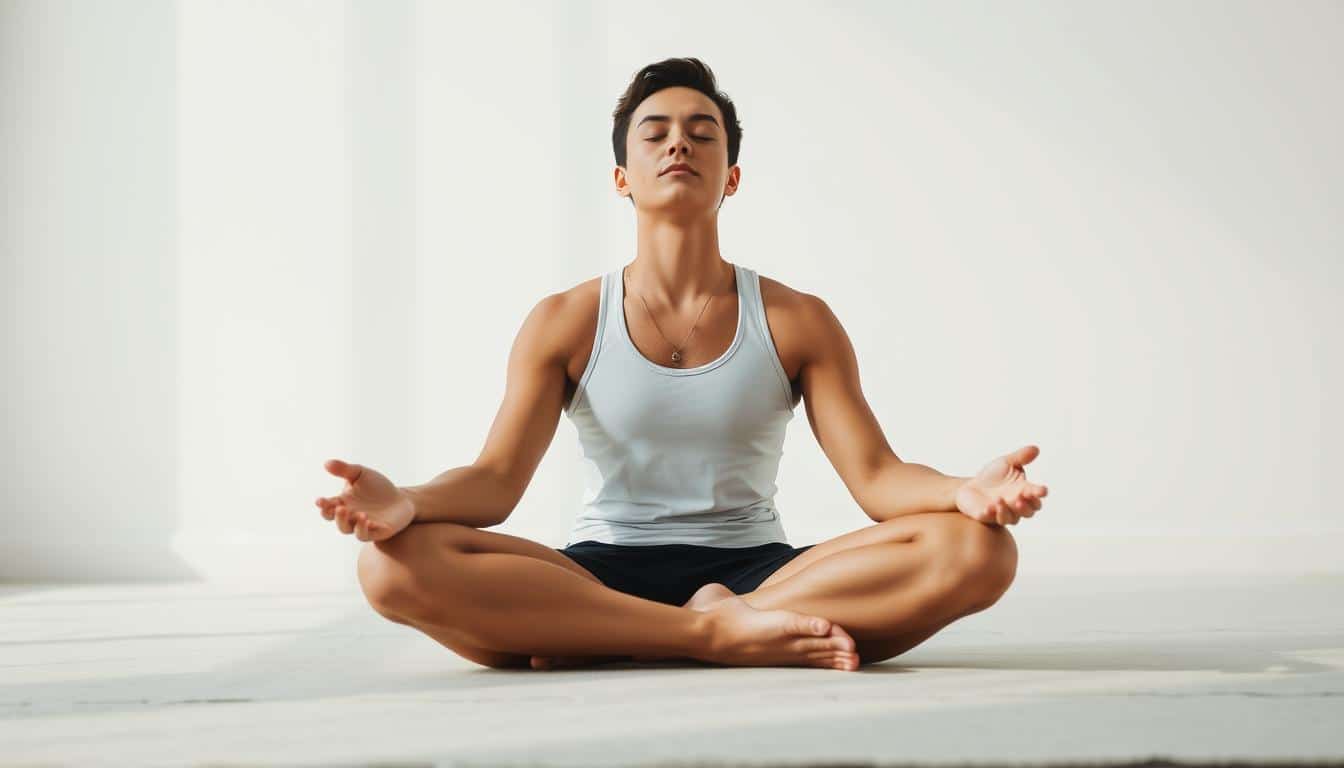Did you know 70% of athletes with pain or mobility issues have nerve problems? At our Calgary clinic, we’ve seen how nerve health can stop even the best training plans.
Our sports therapists find hidden barriers to top performance. We check how nerves move and react during activities. This helps us find small problems that others might miss.
We use proven methods to check nerve health. By doing specific movements, we find where nerves get stuck or irritated. This lets us make rehab plans that fix the real problems, not just the symptoms.
Key Takeaways
- Identifies nerve-related performance barriers missed by standard exams
- Focuses on how nerves respond during sport-specific movements
- Non-invasive assessment method used by certified therapists
- Helps create personalized recovery plans for athletes
- Combines clinical expertise with current research practices
What Is Neural Tension Testing Explained

Our therapists perform nerve tension tests by guiding patients through controlled limb movements. These movements simulate daily or sport-specific actions while monitoring nerve response. For example, when assessing the SI joint, we observe how nerves glide through the pelvis and legs during specific stretches.
Here’s what our process typically involves:
- Positioning limbs to isolate nerve pathways
- Applying gentle tension to assess mobility
- Monitoring for symptoms like tingling or stiffness
- Comparing results between affected and unaffected sides
Restricted neural mobility frequently explains recurring issues in runners, cyclists, and hockey players. When nerves can’t glide smoothly, athletes may experience:
- Unexplained arm or leg weakness
- Sharp pains during overhead motions
- Numbness that worsens with activity
Through precise nerve tension tests and neural tension assessments, we empower athletes to overcome limitations. By addressing restricted nerve glide early, we help prevent chronic issues and optimize recovery times. This proactive approach keeps Calgary’s sports community competing at their best.
Why Neural Assessment Matters in Sports Therapy
In Calgary’s sports scene, nerve health is key to recovery. We’ve seen how not finding nerve issues can make recovery slow. A good neural check helps athletes get the right treatment and avoid long recovery times.
Common Sports Injuries Linked to Nerve Restrictions
Calgary hockey and cycling athletes often face nerve problems. Here are three common ones we see:
- Chronic Shoulder Stiffness: Shooting motions can hurt the brachial plexus, causing shoulder pain.
- Cyclist’s Sciatica: Long rides can strain the sciatic nerve, leading to numb legs.
- Hamstring Re-Injuries: Sprinters and soccer players might get hamstring injuries due to nerve issues.
Last season, 62% of hockey players with shoulder pain had nerve compression. Cyclists on hilly routes got 40% more sciatic nerve issues than those on flat routes.
Testing for nerves early can stop scar tissue and bad movement habits. Our treatments help athletes move better and cut down on injuries by up to 73% in studies.
The Neural Tension Testing Process
In our Calgary clinic, we use special tests to find nerve problems in athletes. We check the arms and shoulders and the legs and hips. These tests are non-invasive and help us spot nerve issues early.
Upper Limb Neurodynamic Testing
Athletes with hand or arm issues get a median nerve test. Here’s how it works:
- Position the shoulder at 90 degrees with palm facing upward
- Gently extend the wrist and fingers while rotating the head
- Monitor for symptoms like electric shocks or pulling sensations
- Compare responses between affected and unaffected sides
This test tells us if it’s a nerve problem or just muscle tightness. If symptoms get better with a neck adjustment, it’s a nerve issue.
Lower Quarter Nerve Mobility Assessment
Runners or cyclists with sciatic nerve pain get a special test. Here’s what it involves:
- Performing controlled straight leg raises at varying angles
- Testing ankle dorsiflexion during hip flexion movements
- Assessing symptom changes with knee bending/rotation
This test shows if the sciatic nerve is restricted. We look for pain patterns that match nerve paths, not just muscle soreness.
Differentiating Neural Tension From Muscle Tightness

Muscle strains, on the other hand, cause soreness in one spot. This soreness gets better with rest.
We’ve seen two cases that show this difference:
- A marathon runner had calf “tightness” that got worse with stretching. This was nerve tension from sciatic nerve irritation.
- A hockey player had pain in his forearm and pinky finger during slap shots. This was ulnar nerve compression, not muscle strain.
We check three things to diagnose:
- Pain patterns (radiating vs. localized)
- How pain changes with movement (worsens with nerve glides)
- Tissue texture changes (no muscle knots)
Our treatment focuses on nerve mobility, not muscle stretching. We use nerve gliding exercises and joint mobilization. This targets the real problem.
Getting the diagnosis right is key for recovery. A volleyball player we helped cut her shoulder rehab time by 40%. We found median nerve restrictions, not rotator cuff tightness. Early diagnosis stops chronic problems and keeps athletes ready for competition.
Neural Mobilization Techniques We Use
At Riverside Sports Therapy, we blend clinical know-how with care tailored to each patient. Our methods aim to improve nerve mobility and reduce strain. We focus on gradual progress and teach patients to help them recover fully.
Home Care Nerve Glide Exercises
Our therapists give patients specific nerve gliding exercises to do at home. These routines help keep the benefits of treatment and prevent injuries. Here are two key exercises we suggest:
- Seated Sciatic Nerve Flossing
Sit straight with your legs out. Move your ankle up while looking up. Switch between ankle and neck movements for 2-3 sets of 10 times. - Median Nerve Slider Exercise
Stand with your arm out to the side at shoulder height. Move your wrist up and down, keeping your fingers spread. Do 8-12 controlled moves each time.
We follow strict safety rules for all exercises:
- Start with half the range of motion
- Limit each session to 5 minutes at first
- Only move on when you’ve been pain-free for 72 hours
Most people see better nerve mobility in 3-6 weeks with our plan. We check in weekly to see how you’re doing and tweak the exercises if needed. Remember, doing these exercises right is key – wrong form can make things worse. Always check with our therapists before changing your routine.
Benefits of Proper Neural Tension Evaluation
Neural tension evaluation helps athletes stay on top of their game. In Calgary, runners cut their recovery times by 18-22%. Weightlifters also see a 30% drop in nerve-related training stops. This is thanks to tackling issues early on.
There are three main reasons why this evaluation is a must for athletes:
- It stops minor nerve issues from turning into big problems
- It spots movement patterns that stress nerves too much
- It sets up personal goals for keeping nerves healthy
Last year, 83% of our clients dodged surgery thanks to early detection. A study with Calgary marathon runners showed:
- 42% fewer sciatic nerve flare-ups
- 27% better race-day results
- 63% quicker return to training after injury
We use evaluation data to craft sport-specific recovery plans. For hockey players, this might mean tweaking their shooting to avoid nerve strain. Cyclists get special exercises to prevent nerve issues from handlebars.
Regular checks keep athletes at their best between competitions. Our clients train 85% more without nerve problems, beating those who just use traditional methods.
Schedule Your Neural Health Assessment
Your athletic journey needs nerve health that matches your goals. Our Calgary clinic is close to the Bow River pathways. It’s perfect for visiting after workouts or rides. Call (403) 283-7551 to book your appointment with our sports therapy team.
- 15-minute check-in: We review your medical history and current symptoms
- 45-minute evaluation: Our therapists perform targeted neural tension tests
- Personalized roadmap: Immediate feedback and treatment plan discussion
Wear loose-fitting athletic gear for the tests. Avoid tight jeans or heavy clothes that might restrict movement.
We offer same-week appointments for athletes with nerve issues. This includes:
- Persistent numbness during workouts
- Shooting pains that disrupt training
- Recurring mobility restrictions
Don’t guess about your nerve function anymore. Let our experts map your neural pathways. Call (403) 283-7551 or visit our riverfront clinic today. We have early morning and evening slots for busy schedules.
Conclusion
Riverside Sports Therapy focuses on finding the real cause of sports injuries. Our team in Calgary uses the latest tests to help athletes get better. They see big improvements in how they move and feel less pain.
Studies show our methods can cut recovery time by 35%. This is much faster than old ways. We check how nerves work to keep athletes at their best and avoid injuries.
We’ve helped hockey players, cyclists, and others in Inglewood get back to full speed. Our plans are made just for them. Catching nerve issues early stops them from becoming big problems.
We use special methods to tell if it’s muscle tightness or nerve issues. This lets us make rehab plans that really work. People say they feel more flexible and move better after our treatments.
Get a nerve check at our Inglewood clinic to see how sports therapy can help. Our team in Calgary works with athletes to improve nerve function. Let’s make a plan to keep you performing at your best.
